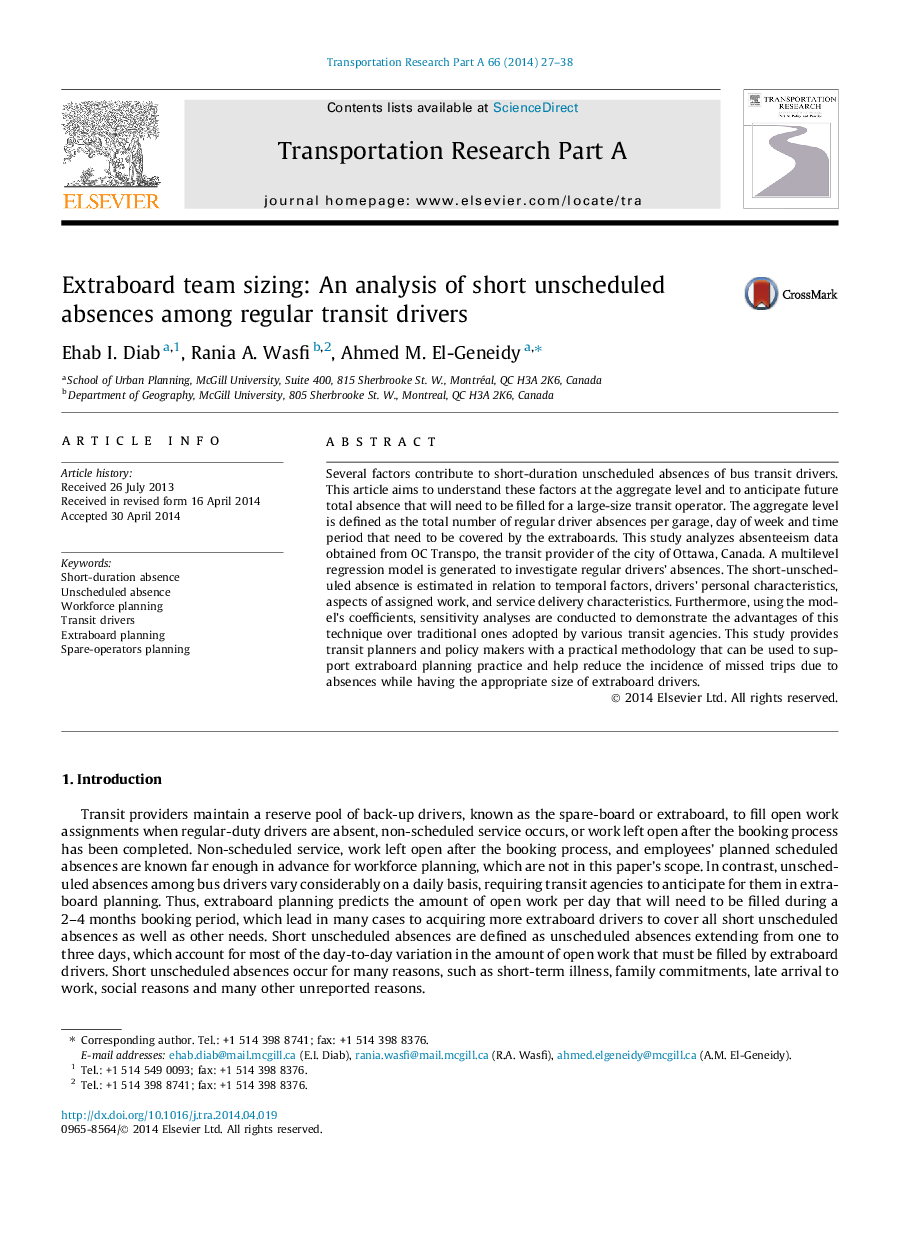| Article ID | Journal | Published Year | Pages | File Type |
|---|---|---|---|---|
| 6781648 | Transportation Research Part A: Policy and Practice | 2014 | 12 Pages |
Abstract
Several factors contribute to short-duration unscheduled absences of bus transit drivers. This article aims to understand these factors at the aggregate level and to anticipate future total absence that will need to be filled for a large-size transit operator. The aggregate level is defined as the total number of regular driver absences per garage, day of week and time period that need to be covered by the extraboards. This study analyzes absenteeism data obtained from OC Transpo, the transit provider of the city of Ottawa, Canada. A multilevel regression model is generated to investigate regular drivers' absences. The short-unscheduled absence is estimated in relation to temporal factors, drivers' personal characteristics, aspects of assigned work, and service delivery characteristics. Furthermore, using the model's coefficients, sensitivity analyses are conducted to demonstrate the advantages of this technique over traditional ones adopted by various transit agencies. This study provides transit planners and policy makers with a practical methodology that can be used to support extraboard planning practice and help reduce the incidence of missed trips due to absences while having the appropriate size of extraboard drivers.
Keywords
Related Topics
Physical Sciences and Engineering
Engineering
Civil and Structural Engineering
Authors
Ehab I. Diab, Rania A. Wasfi, Ahmed M. El-Geneidy,
